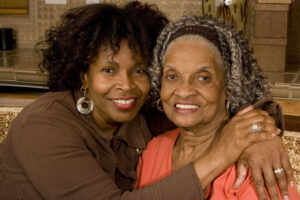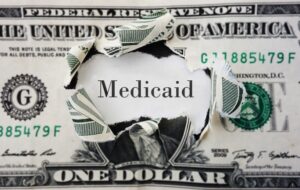
The Risks of Hastily Transferring Assets for Medicaid Eligibility
My friend’s mother just had a stroke. Another (well-meaning) friend told her if she wanted to make sure she could get her mom into a nursing home soon and get it covered by Medicaid, she should have her mom sign her condo and car over to her (the daughter) and make sure she only had $2,000 in the bank.
My friend was reeling from this trauma and this “helpful advice” was, frankly, scaring her. Thankfully, we talked before she made any hasty decisions.
So, here’s the deal with Medicaid. From an elder law attorney. Who handles hundreds of cases like these every day.
If you’re in a nursing home or headed to one, if you’re spending down, you’re doing it wrong.
As difficult as it may be, we must resist the urge to hastily transfer assets to qualify for Medicaid benefits.
While this may seem like a quick and easy solution, it can lead to serious consequences. It is important to understand the risks involved and seek proper legal guidance to protect your assets and ensure eligibility for Medicaid.
Understanding the Medicaid “Spend Down” Requirement
A variety of factors, including income and asset limits, determine Medicaid eligibility. To qualify for coverage, an individual must meet certain financial requirements set by each state. This often includes a “spend down” requirement, which means that the individual must use their available resources to pay for medical expenses before Medicaid will cover any remaining costs.
However, this does not mean one should hastily transfer assets or spend all their savings to meet these requirements. In fact, there are strict rules and regulations surrounding asset transfers, and any improper transfers can result in penalties and even a period of ineligibility for Medicaid coverage.
Why Spend Down is Not the Solution
You do not have to spend down to qualify for long-term care coverage through Medicaid. There is a $2,000 asset limit, but dozens of exclusions allow you to keep more.
You can always keep one-half of your assets, maybe much more, and possibly even all, and qualify for coverage, but you must have professional help.
Medicaid assistance is available only to those who own very little. The Medicaid rules determine what “owning very little” means. A person can only own around $2,000 of what Medicaid calls “resources.”
These include cash in the bank, CDs, the cash value of insurance policies, investments, etc. Income includes regular paychecks, Social Security, or child support payments.

Both income and resources are potentially “counted” by Medicaid as “available.” Available income and resources must be carefully spent or transferred away to qualify for assistance.
Exempt vs. Non-Exempt Assets
Some resources are exempt. Medicaid rules exclude them from the $2,000 limit, and they are sheltered from Medicaid’s requirement that the applicant must spend down almost everything before assistance becomes available.
For example, a married couple’s residence, one motor vehicle per person, household goods and furnishings, medical equipment, jewelry, and other items are exempt. So, an ill spouse can still qualify for Medicaid assistance even if the couple owns those resources.
The distinction between “exempt” and “non-exempt” assets can be tricky, though, and should first be assessed by a qualified elder law attorney before taking any action. Transferring assets without proper knowledge and planning can result in costly penalties and delays in Medicaid eligibility.
How to Protect Your Assets Efficiently
So, if spend down is not the solution, what is?
The key is careful planning with a qualified elder law attorney. There are legal strategies that can help you protect your assets while still meeting Medicaid’s financial requirements. These strategies may include creating a trust, utilizing special annuities, or transferring assets through gifting.
However, it is important to note that these strategies must be implemented beforehand. Medicaid has a look-back period of five years, during which any transfers or gifts made can still affect eligibility for benefits. That’s why seeking legal help as soon as possible is crucial when considering long-term care options.
Contact Us for Legal Help
I’ve seen people lose everything spending down when they didn’t have to. I want you to be able to keep the largest amount of your money and property you possibly can AND get the best care you can.
If you or a loved one is facing the need for long-term care and are worried about protecting assets, contact us today. Our experienced elder law attorneys can guide you through the Medicaid application process and help you protect your hard-earned assets. Don’t fall victim to the misconception that “spend down” is the only option – let us help you find a more effective and sustainable solution.
Call us today at Elder Law Guidance at (859) 544-6012 to get your Free Guide to Qualifying for the Care You Deserve or to set up a free consultation to discuss your needs. Don’t wait – start planning for your future now.
